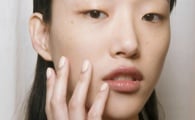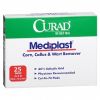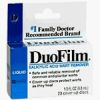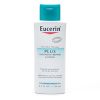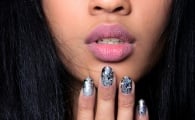Beauty Tips
Your Most Embarrassing Beauty Problems - DecodedToo mortified to talk to your friends or derm about your gross beauty issues? Here's the ugly truth on what's causing them -- and how to lose them for good |
Dandruff is for Your Creepy Algebra Teacher What people think it is: So you're feeling like a gangsta, and you go to brush your shoulders off. Imagine your surprise when it's not swag that flies off your shoulder, but ... flakes of dry, dead skin. Cue the cringing. Most people assume this is due to a dry scalp or not washing your hair enough.
What it actually is: Dandruff is actually indicative of the opposite of a dry scalp. The organism Pityrosporum ovale, a yeast-like organism present on our heads, feeds on excess oil and dead skin cells, causing the cells to shed more frequently, which results in those pesky flakes. Some people have an inflammatory reaction to the overgrowth of this organism, which causes the redness and itching.
How you get it: While some people have a genetic predisposition to it, Dr. Krant says that anyone can have dandruff.
How you get rid of it: Dr. Krant recommends shampoos that contain pyrithione zinc, selenium sulfide, coal tar, and ketoconazole. "All of these help to kill the organism and reduce the population so there is less to react to," Krant says. She notes that products with hydrocortisone (one-percent solution) or salicylic acid will help with the inflammatory reaction, but will not address the growth of the organism itself. See our list of the 8 Best Dandruff Shampoos to find a reader-recommended product that's right for you.
For a chronic case of dandruff, you may need to see a dermatologist for a prescription and to rule out bigger health problems that dandruff can be a symptom of, such as seborrheic eczema, an autoimmune condition, or Parkinson's Disease.
How you prevent it: Shampooing more frequently can help keep dandruff at bay because the organism that causes it is drawn to oil for its dietary needs. (Ick.)
SEE NEXT PAGE: Foot Fungus? Isn't This How the Black Plague Started?
What it actually is: Dandruff is actually indicative of the opposite of a dry scalp. The organism Pityrosporum ovale, a yeast-like organism present on our heads, feeds on excess oil and dead skin cells, causing the cells to shed more frequently, which results in those pesky flakes. Some people have an inflammatory reaction to the overgrowth of this organism, which causes the redness and itching.
How you get it: While some people have a genetic predisposition to it, Dr. Krant says that anyone can have dandruff.
How you get rid of it: Dr. Krant recommends shampoos that contain pyrithione zinc, selenium sulfide, coal tar, and ketoconazole. "All of these help to kill the organism and reduce the population so there is less to react to," Krant says. She notes that products with hydrocortisone (one-percent solution) or salicylic acid will help with the inflammatory reaction, but will not address the growth of the organism itself. See our list of the 8 Best Dandruff Shampoos to find a reader-recommended product that's right for you.
For a chronic case of dandruff, you may need to see a dermatologist for a prescription and to rule out bigger health problems that dandruff can be a symptom of, such as seborrheic eczema, an autoimmune condition, or Parkinson's Disease.
How you prevent it: Shampooing more frequently can help keep dandruff at bay because the organism that causes it is drawn to oil for its dietary needs. (Ick.)
SEE NEXT PAGE: Foot Fungus? Isn't This How the Black Plague Started?










